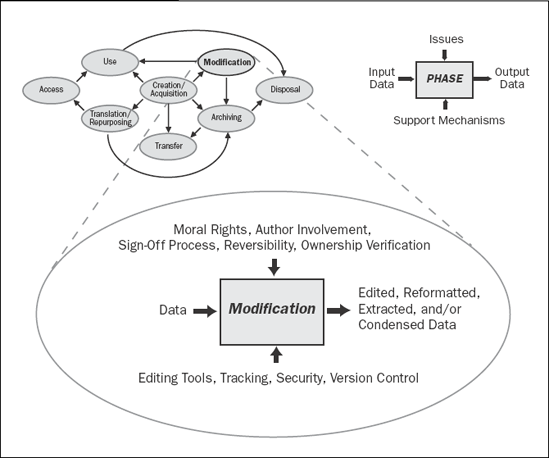4.7. Modification
In the modification phase of Knowledge Management, the information is modified to suit the immediate and likely future needs of knowledge workers and management. The primary issues related to the modification phase of the KM life cycle, illustrated in Exhibit 4.3, include moral rights, the degree of author involvement, assigning responsibility for the sign-off process, making decisions as to the reversibility of modifications to information, and verifying ownership of information.
Ideally, modifications to information should be reversible. However, full reversibility may require significant storage space and thus be impractical. For example, images may be stored as original, uncompressed TIFF documents or saved as space-saving JPEG documents. Using a JPEG compression scheme may provide a 10- to 100-fold decrease in file size compared to the original, but the compression process isn't fully reversible because the transformation from a TIFF image to a JPEG one involves data loss. The greater the compression, the greater the information loss. Finally, someone in the organization has to have the authority to sign off on the modification, indicating that it, like the original information, is correct.
EXHIBIT 4.3. EXHIBIT 4.3

As illustrated in Exhibit 4.3, the key support mechanisms for this phase of the KM life cycle include editing tools, tracking information, security, ...
Get Essentials of Knowledge Management now with the O’Reilly learning platform.
O’Reilly members experience books, live events, courses curated by job role, and more from O’Reilly and nearly 200 top publishers.

